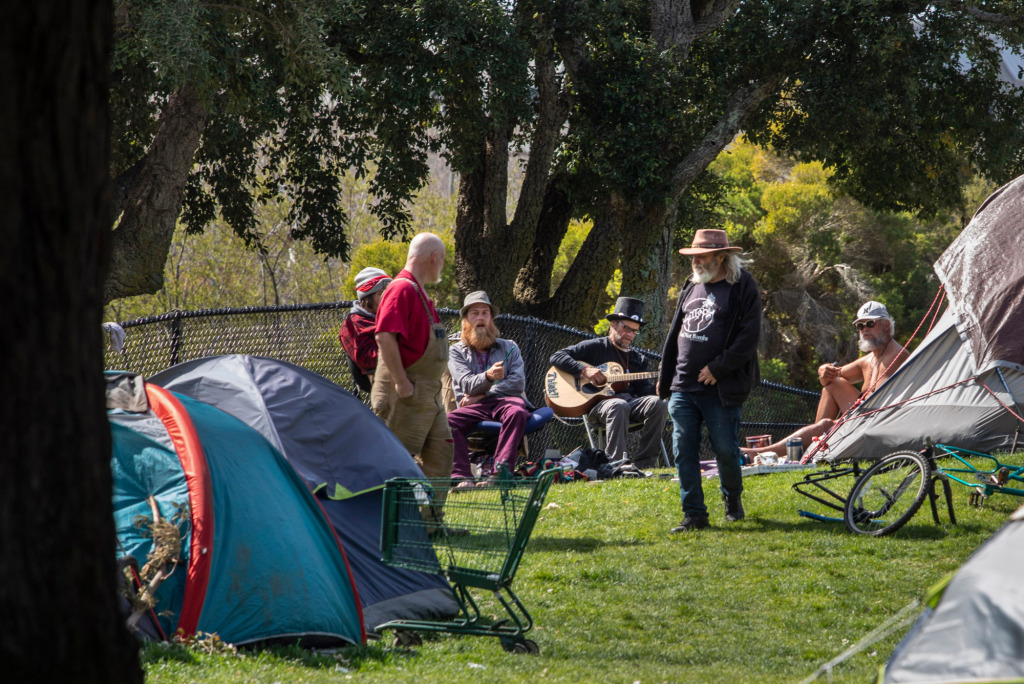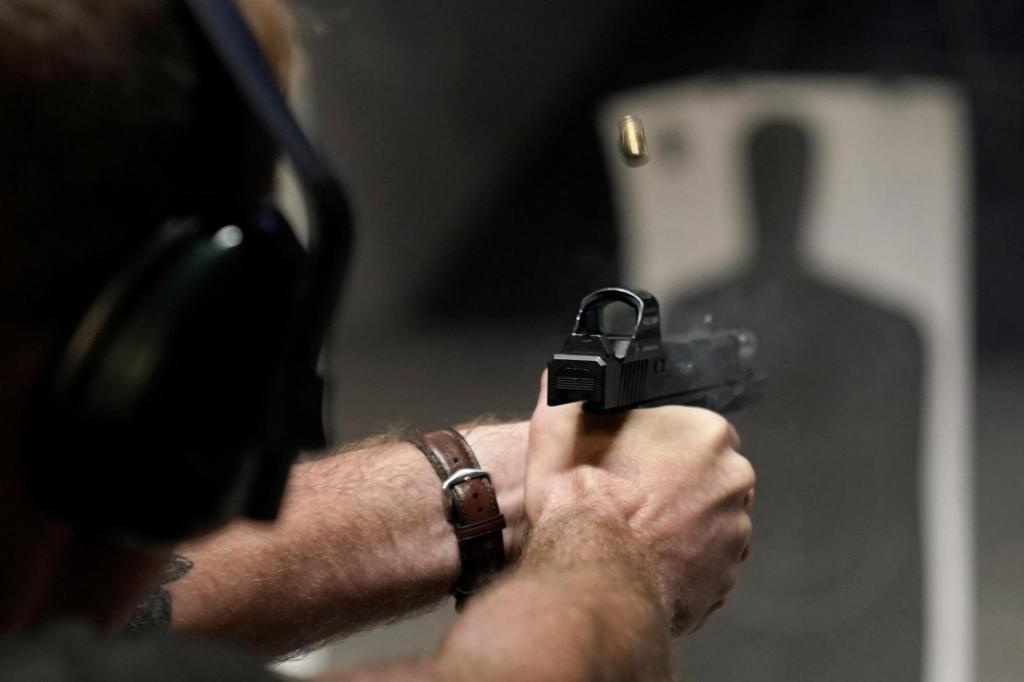Fed up with city rules that push them from place to place, homeless Californians are heading to court to fight for the right to stay put in the camps they call home.
And many – at least for now – are winning.
Court orders are preventing cities from Sausalito to Santa Cruz from clearing homeless encampments. Other lawsuits are fighting anti-camping ordinances or securing basic rights for unhoused residents, such as the right to keep their belongings and receive advance notice before a camp is disbanded.
The legal victories provide at least a temporary reprieve to residents with few other options, in a state that had nearly 114,000 people sleeping on its streets last year – a number that’s grown by more than a third since 2015.
But the legal orders are tying cities’ hands, preventing them from closing camps even as they become unsanitary or are the site of violent attacks. Advocates say the recent flurry of litigation is part of a broader movement of resistance as the homelessness crisis expands exponentially and cities crack down on encampments.
“There are many more attorneys who are taking on these cases and litigating them,” said Elisa Della-Piana, legal director of the Lawyers’ Committee for Civil Rights of the San Francisco Bay Area, “and that’s exciting because one of the biggest problems in this area has been that there are many abuses that are clearly illegal and go without remedy.”
Della-Piana, who has been litigating on behalf of unhoused people for 20 years, recently scored one of the biggest wins of her career: a settlement forcing Caltrans to pay $1.3 million to homeless East Bay residents who had their belongings destroyed during encampment sweeps.
Meanwhile, the California Homeless Union marked three recent victories, with judges in Santa Cruz, Sausalito and Sacramento granting preliminary orders barring those cities from removing certain encampments during the COVID-19 pandemic.
A group of RV-dwellers in Pacifica sued the city this month, attacking an ordinance that makes much of the city off-limits to RV parking. Additional lawsuits are moving forward in Sonoma County, Tulare County, San Diego and Los Angeles, with plaintiffs demanding to remain in their encampments during the pandemic, to be able to live in their cars on city streets, and to avoid being disproportionately cited for minor offenses, such as drinking in public.
Cities and counties may be hit with more legal actions soon if Assembly Bill 816 passes. The bill would require local governments to plan to reduce homelessness by 90% in eight years. If they don’t or fail to follow their plan, the state could sue.
Some plaintiffs’ victories have dismayed city officials. After a federal judge in January ruled Santa Cruz cannot close an encampment of about 140 people at San Lorenzo Park while COVID-19 remains a threat, city officials said the park presents a health and safety hazard, which is getting worse the longer the court forces them to keep it open.
Police recently arrested a man suspected of beating another man almost to death there.
“As the City feared would happen, multiple serious crimes have occurred in San Lorenzo Park and in the surrounding area, including sexual assault, robbery, aggravated assault, and attempted murder,” the city wrote in a legal brief filed this month.
Randolph Vaden Tolley III, a plaintiff who lives in his car next to San Lorenzo Park, said he just wants the city to leave park occupants in peace. “I’m tired of being pushed down and harassed,” he said.
Activists for years have been going to court to fight for the rights of unhoused people, and they haven’t always been successful. In 2018, residents of the Housing & Dignity Village encampment in East Oakland lost their court case, and the city cleared their camp.
But legal experts say they’ve noticed a recent increase in these types of lawsuits. That’s likely at least partly because the number of people living on the streets is growing, said Tristia Bauman, a senior attorney with the National Homelessness Law Center. As encampments grow, cities tend to enact stricter laws targeting unhoused people, which spurs additional lawsuits, she said.
A 2018 ruling from the Court of Appeals for the Ninth Circuit also made the climate more favorable for plaintiffs. Many local lawsuits have cited that Martin v. Boise ruling, which found cities cannot penalize people for sleeping outdoors on public property if there is no other option.
Nowhere is the uptick in litigation more evident than in California, which has a massive unsheltered population, Bauman said. California also has more legal aid resources for poor or unhoused plaintiffs than some other states, she said, and a legal climate that’s particularly favorable to homeless civil rights litigation.
But even when they win in court, homeless rights advocates say their victories are limited. Some are contingent on federal health guidelines stating encampments should not be disbanded during the pandemic unless alternate housing is available. The plaintiffs’ victories in Santa Cruz, Sausalito and Sacramento, for example, may last only as long as COVID remains a threat.
It’s hard to obtain sweeping verdicts that will guarantee broad rights for homeless people because they are not a protected class under federal civil rights law, nor do the courts recognize a legal right to housing, Bauman said.
In Sausalito, the City Council voted last month to move an encampment of about 20 people from Dunphy Park – a location the city says poses significant health and safety risks because there are no permanent bathrooms or showers. The city wants to move the camp to nearby Marinship Park, which has bathrooms and is regularly visited by a mobile shower truck.
Council members also voted to ban daytime camping.
But the Dunphy Park residents refused to move. They sued the city, claiming relocating to Marinship Park and being forced to pack up their tents each morning would put them at greater risk of catching COVID-19.
A federal judge agreed, and barred the city from clearing Dunphy Park or enforcing the daytime camping ban — for now.










